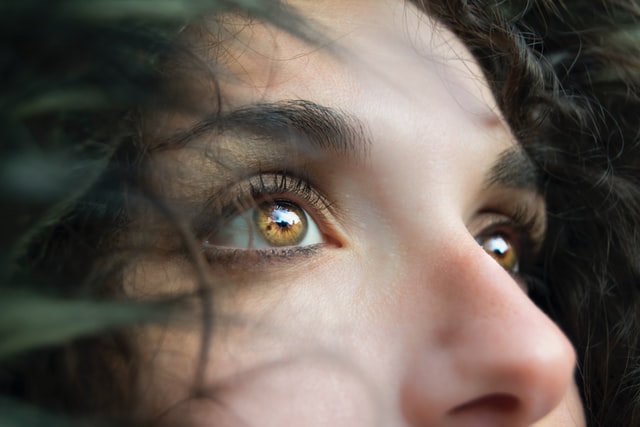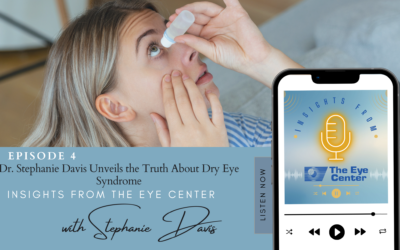Did you know that according to the National Eye Institute, two out of every three people living with blindness or vision problems are women? Prevent Blindness, one of the oldest organizations in the United States dedicated to preventing blindness and preserving sight, has declared April Women’s Eye Health and Safety Month to educate the public on the increased risk for women for vision health issues and the steps women can take to prevent vision loss.
Several factors can make women more likely to develop vision problems. Women on average tend to live longer than men, so they are at greater risk of developing eye health conditions associated with aging, such as age-related macular degeneration and glaucoma. Women also have health issues associated with hormone fluctuations due to pregnancy and menopause which can affect their vision, and dry eye syndrome with severe symptoms also affects more than 3.2 million women middle-aged or older in the United States. Additionally, women have a higher prevalence of thyroid eye disease, cataracts, autoimmune disorders such as lupus and Sjogren’s syndrome, and refractive errors.
Since women are at higher risk of certain eye issues, they need to take extra good care of their eyes. We’re sharing some tips to help women maintain healthy eyes and vision.
Top Tips for Women to Maintain Healthy Eyes and Vision
Don’t smoke
Smoking is bad for your eye health and vision and can lead to an increased risk of developing age-related macular degeneration and cataracts. If you currently smoke, work with your doctor on a plan to quit as this will not only benefit your eye health and vision but also your overall health.
Wear quality sunglasses
Along with providing more comfortable vision when you’re driving or spending time outside, quality sunglasses also protect your eyes from the sun’s UV rays. Exposure to UV rays over time can lead to serious eye issues such as age-related macular degeneration and cataracts. According to the American Optometric Association, sunglasses should block out 99 to 100% of both UV-A and UV-B rays. If you wear eyeglasses, then you would benefit from wearing a pair of quality prescription sunglasses. However, even if you don’t rely on eyeglasses or contact lenses to see well, you still need to wear quality sunglasses when outdoors.
Know your family’s eye health history
There are over 350 genetic eye diseases. Glaucoma is one example of a hereditary eye disease that can lead to blindness if not treated. Ask your family members if there’s a history of cataracts, macular degeneration, or glaucoma in the family, as this can increase your risk of developing these conditions. Be sure to share that information with your doctor when coming in for a comprehensive eye exam.
Eat an eye-healthy diet
Incorporate dark green leafy vegetables, fruits, and nuts into your diet, as these foods can boost eye health. Additionally, omega-3 fatty acids found in salmon and tuna may help reduce inflammation and enhance tear production.
Be careful with makeup
If you wear makeup, make sure you remove it every night before you go to bed, as sleeping in makeup can cause eye irritation and infections. Throw away eye makeup after three months. If you develop an infection such as pink eye, throw your makeup away and don’t use any makeup until the infection is gone. Don’t share makeup with others. We also recommend being careful with false eyelashes and eyelash extensions. Read advice from Dr. Olivares at The Eye Center on false eyelashes and eyelash extensions and how they can affect your eye health.
Wear contact lenses as prescribed by your doctor
If you wear contact lenses, it’s important to wear them as prescribed by your doctor and not overuse your contact lenses. Poor hygiene with contact lenses or overwearing contact lenses can lead to corneal scarring.
Wear protective eyewear
Make sure to wear protective eyewear as needed. Protective eyewear can prevent injuries when playing sports, doing yard work, using sharp tools, or using strong chemicals to clean.
Visit us every year for a comprehensive eye exam
Many eye diseases have no symptoms in the early stages, and your best protection is to have comprehensive eye exams on a regular basis. During a comprehensive eye exam in Pembroke Pines, our eye doctor can detect early signs of diabetes, high blood pressure, and other medical conditions as well as eye diseases and vision problems. Early detection and treatment will prevent issues from turning into major problems for your eye health and vision.
To schedule an appointment for a comprehensive eye exam with the optometric physicians at The Eye Center, call 954-432-7711.





